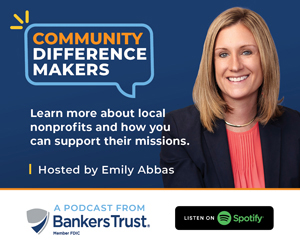Professional Project Partners takes ‘employee-centric’ approach to consulting

When you’re a Fortune 500 company that’s paying a highly skilled consultant up to $250 an hour on a critical project in its final phase, it’s even more valuable to know that the expert’s not already thinking about the next job rather than yours.
Professional Project Partners, a 1-year-old Des Moines-based consulting company that has already built a bench of 27 consultants, is finding that having the majority of its talent on its payroll — and treating them well — is benefiting its clients in loyalty and paying off in rapid growth.
Founded by Troy Krueger, a 2001 Drake University graduate, P-3 branched out to Minneapolis in September, and on March 1 opened a Phoenix office.
“We’ve done all that in a year, and things seem to be going very well,” said Krueger, who still looks young enough to be asked for his ID at bars. “There’s no indication we won’t continue to grow. We have some lofty goals for 2005 and 2006. Chicago and San Francisco are on our radar screen.”
Professional Project Partners specializes in connecting its project management and business analysis consultants with its clients, which include companies such as Wells Fargo Home Mortgage and Mesaba Aviation Inc. Krueger said that 80 percent of P-3’s consultants are full-time employees of the company, while another 20 percent are freelancers who work on a project-by-project basis.
Having mostly full-time employees is an approach that separates P-3 from most of its competitors, he said.
“Typically, consulting companies are set up with account managers that receive projects from a client, and then they outsource it by going to job boards to find a candidate,” he said. “The big reason that most consulting companies don’t want to have an employee-centric philosophy is that it creates more overhead when they’re not actually at a client’s site, because you’re still paying them. But good people sell themselves; they’re not going to be sitting around on the benches looking for their next project. Their experience with projects really sells itself.”
Each client has different methodologies it uses for its large-scale projects, and some companies will take a standard, such as the Project Management Institute methodology, and customize it to fit their corporate culture, Krueger said. Once assigned to a project, P-3 consultants control the scope, planning and budgets for their projects, which typically require more than $1 million to complete, as well as carrying the responsibility for hitting all the milestones.
The company’s consulting fees range from $60 to $250 per hour, depending on the demand for the particular expertise that the consultant has. Salaries paid to its full-time consultants are in the $70,000 to $75,000 range, though experts in systems made by German software maker SAP AG pull in about $220,000 per year.
“I find all my employees through networks, and the best networks are my clients,” Krueger said. “We bring in people that have been full-time employees at companies, and we also bring in people who have been accustomed to being consultants. It really depends; if someone has a family, they’re really going to want to stay in Des Moines, whereas someone who is single may not mind having to travel.” Each full-time employee has a minimum of 15 years’ experience, he said.
Barb Stirling, an independent consultant who was placed at Wells Fargo Home Mortgage to complete three large software projects, said P-3 is far more considerate to its clients than most.
“If you consult, you quickly find who the good recruiting firms in town and who are really are not,” said Stirling, whose bad experiences have included having firms submit her resume to companies after she had asked them not to, or being sent to a job for which she was not qualified.
Krueger “knows the business really well,” she said, “and actually when you speak to him, he doesn’t sound as young as he is. He’s very professional; he knows how to communicate with you. A lot of people in this business don’t call you back. He will call you back whether you got the job or not. I think his business will grow significantly in Des Moines, because he treats people well.”
Currently, about 70 percent of P-3’s business is with Des Moines-based clients, but Krueger expects the majority of its business to shift to Minneapolis within the next couple of years, primarily because it’s a signficantly larger market than Des Moines.
“I think it’s realistic to say we’ll see 100 percent growth in employees once we get the third branch going,” he said. “But we’re never going to grow beyond our means.”







